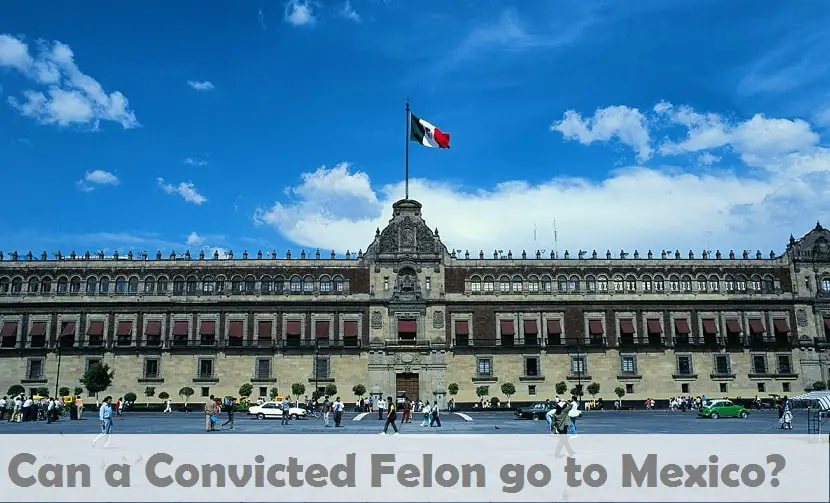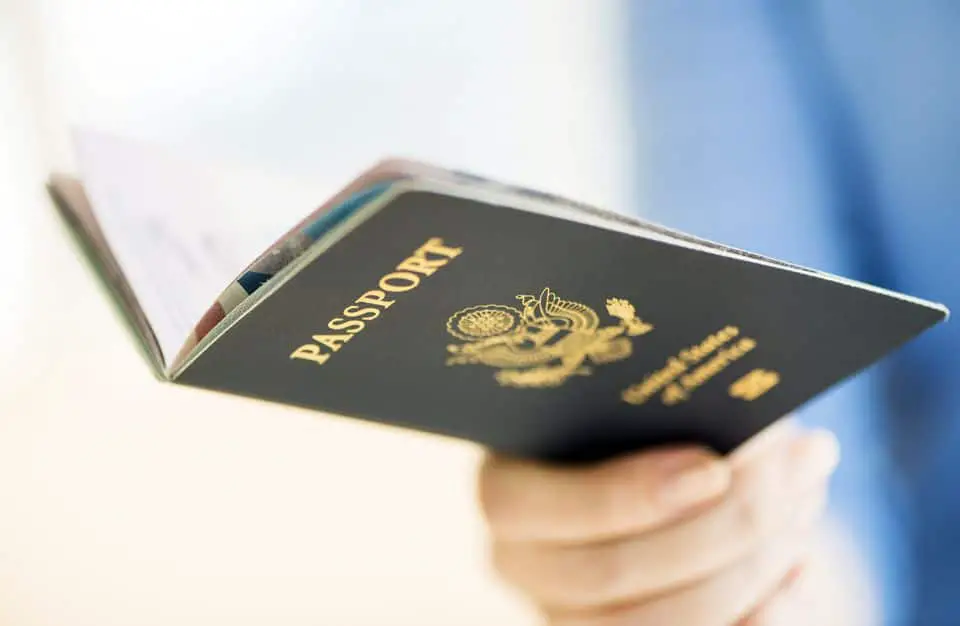Can felons go to Mexico? Traveling for felons can be difficult, especially just after leaving prison. While on parole, a felon cannot travel outside of the area they live – the need to check in on an individual who has left prison is important for protecting society and ensuring that they do not fall back into a pattern of reoffense.
When parole time is served, traveling within the U.S. is also possible and should usually be met with no resistance (outside of cases where an individual has committed a sex crime, in which case they must still check where they are in the country and proximity to restricted areas).
Can a felon go to Mexico?

However, traveling beyond the borders is not always so easy and the issues that arise because of international travel should be treated carefully – if you venture to a country that you are not allowed to, you may find yourself on the first plane back home or possibly even being detained in custody. We will examine how a felon can improve their chances of entering a country without issue.
Restrictions for entering Mexico – passports and no visas
To enter Mexico, an American must have a passport. This isn’t necessarily due to having to show said passport on entry to the country so much as needing the passport as a proof of identity while in Mexico and needing to present it on re-entry to the U.S. Around 42% of Americans today have passports, which is relatively low compared to other Western countries, so obtaining one may be important before you plan to make your trip.
Having another form of identification may satisfy the conditions of a company that are selling you a trip, however, you should really carry a passport when traveling. We will examine issues that could arise if you do not have a passport if problems should occur during your trip to Mexico later in the article.
Additionally, Mexico is a country that does not require American citizens to obtain a visa before visiting – this saves time and money before traveling and makes your passport the most important document that you will have during your trip.
Other areas that do not require a visa include the countries of the Caribbean, Europe, Columbia, and Ecuador. This, however, can be a difficulty as you will not know if you will be allowed access to Mexico until you are in the country itself and it is possible that you will have to return after initially making the trip.
Difficulties obtaining a passport as a felon

Depending on the crime that you committed, you may not be able to obtain a passport. If you were convicted for smuggling (especially if you were smuggling drugs) internally, it is unlikely that you will be able to obtain one. If you were able to obtain a passport despite these convictions, some countries such as Colombia will still refuse your entry, so be sure to research how the nature of your crime could affect your chances of entering a country.
If you were convicted of international drug trafficking it is almost impossible that you will be granted one at all. Outside of specific examples, there are 3 conditions that one must not fulfill in order to be granted a passport:
- Having an outstanding warrant
- Being considered a risk to yourself and other overseas
- Being considered a flight risk for a pending trial
If any of these are true, you will not be granted a passport. A number of other specific stipulations are set, however, you would do well to investigate your personal case in more detail instead of all of them being listed here.
Changes since 9/11
In 2001, the world changed irreparably after the attacks of 9/11. Traveling worldwide became very different seemingly overnight and we still feel the effects of the attack today, 19 years later, and will likely continue to feel them for a very long time.
One of the stipulations that were put in place was that, from 2004, American, Mexican, Canadian, and Bermudan citizens must show their passports when entering or exiting the U.S. from within the Western Hemisphere (additional requirements are necessary for other nationalities). As such, your passport is necessary not only external to the U.S., but on your return as well. Do not lose it otherwise you will have a very difficult road back home.
Traveling via plane
Air travel into Mexico is probably the easiest method from most places in the U.S. and requires a valid U.S. passport on entry. This is again necessary for reentry, so be sure to keep it to hand. If an American citizen has a valid passport and travels to Mexico via airplane, there should be very few to no issues arising from their previous convictions.
There are stories that can be found online that outline difficulty that felons have had being held in Mexico when arriving due to a history of sexual offences – we will examine this in detail below.
Traveling via cruise
Cruises into and around Mexico are also popular with American travelers and there are no issues that can occur from a “closed-loop cruise” – that is the ship leaves the U.S. from a port, sails past Mexico, and returns to the U.S. to dock (whether at the same port or a different one as the departure destination).
Issues can occur, however, if for any reason the cruise ship needs to make a stop in Mexico (may that be a planned stop at a Mexican port or an emergency stop due to a medical reason). If you cannot provide adequate documents, then it is possible that you may experience legal trouble and possibly even be detained while Mexican authorities determine your situation.
The Mexican police have access to the American criminal database and, as such, you need to show that you are legally allowed into Mexico if asked otherwise an investigation may begin which could cause logistical problems as well as legal problems.
Traveling via automobile to Mexico
If you choose to travel by car, a passport is again necessary as you will need to show valid travel documents (including an entry permit) on entry to Mexico and at any other checkpoints. Vehicle inspections are common as well, so making sure that you can adequately prove that you and your vehicle are allowed into Mexico is very important. Entry permits can be obtained at immigration checkpoints along the road, but be sure to obtain one as soon as possible.
Being detained in Mexico

- Sexual offences and entry to Mexico
The main issue for those who have felonies against their names and trying to enter Mexico is if they have sexual offenses on their records, especially if these offences were against children.
At this point, it is out of the hands of the Mexican and American governments and is now an international issue – Interpol has a database of sex offenders which all countries who subscribe to must use in order to protect local children from those who may be dangerous to them.
If you are found to be traveling with a sex offender conviction (or a warrant for your arrest), then the Marshall’s Office will send an “Offenders” alert to the Interpol database. This will then be handled by the office of SEGOB (Sitio de Secretaría de Gobernación – Secretariat for Home Affairs) and Interpol in making sure that you are found and will be deported for the safety of the greater Mexican community.
The standard treatment will be for an individual to be detained while the investigation goes on and then be sent back to the U.S. It should also be noted that these offenses may not and indeed probably will not disappear from the Interpol record after 10 years, so this may affect your chances of international travel for life. If you feel this would apply to your case, look into the likelihood of this happening to you with legal support.
Improving your chances of travel to Mexico as a felon

Although it is unlikely that you will be denied entry to Mexico if you fulfill the requirements to obtain a passport, to further improve your chances there are a number of things you can do. The most effective will be to look into expunging your conviction from your criminal record – this is the process of removing a conviction or an arrest from your record so that you will appear no different from any other citizen who has not committed the crime.
Generally, background checks only check up to 10 years prior to the check taking place, however, if you wish to get on with your life before that point, it would be wise to look into legal aid and support to help you show that you are a reformed character and no longer need to be considered a danger to society.
